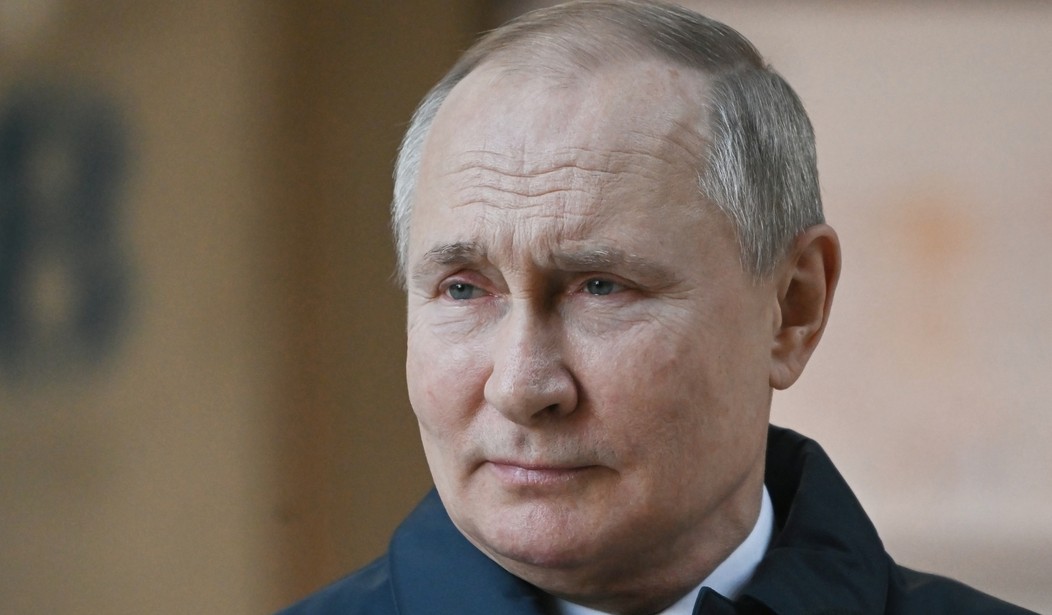We still don’t know how or when the current war in Ukraine will end, assuming it does, and anyone telling you they know the answer is probably selling something. But there is no question that this event has reshaped many aspects of the current world order and some changes might be permanent. If events follow any sort of logical course, many of these long-term changes will not work out in Russia’s favor either before or after the dust settles. At CNBC, Holly Ellyatt has mapped out the five most likely consequences for both Putin himself and the Russian people in general. These seem fairly spot-on, so let’s look at them briefly.
1. Russia will be leaving behind a lot of bodies.
Ellyatt makes note of the shockingly high casualty rates among the Russian forces. There is simply no way to obtain accurate numbers during the fog of war and both sides are probably understating or overstating the figures in their own favor. But most analysts agree that Russia has had anywhere between 8,000 and 15,000 soldiers killed in action. If so, that would add up to nearly the same number of soldiers they lost during their ten-year misadventure in Afghanistan, but they’ve managed it in barely a month. That means there are thousands of families back in Russia who will never see their sons, husbands, brothers, and fathers again after being told they were leaving for a quick “special expedition” that would be easy as pie. All of those families will likely not have fond feelings for Putin after this.
2. Putin has driven a rift between Russia and Ukraine that will likely never heal.
As Ellyatt reminds us, there was still a lot of Russian culture in Ukraine despite years of tensions, with many families having relatives on both sides of the border. But now, after the massive war crimes and wanton destruction of civilian targets, she describes how the Ukrainians have drawn together under their own flag and will now harbor “an abiding animosity toward Russia.” If there were lingering pockets of Ukrainians sympathetic to Russia and feeling kinship with them, it’s a fair bet that this will have been permanently erased. Putin has made Ukrainian President Zelenski into both a national and international heroic figure, while Putin will be seen as a largely inept villain. I would argue that one of Putin’s primary original goals was to ensure that he didn’t wind up with another NATO member and adversarial entity camped out on his border. What he has probably created instead is a permanent enemy peering warily at him over the divide. In short, Putin may have personally created precisely the thing he was trying to avoid.
3. Russia’s economy is quickly heading toward junk-bond status
Holly Ellyatt makes a strong case here (read the full details at the link) and predicts that no matter how close or far away the end of the war may be, the negative impacts on Russia’s economy and its people will linger far longer. And these effects are likely already unavoidable. Russia’s economy is predicted to already be entering a deep recession after fifteen straight years of solid growth. By the end of the year, Russians are predicted to be enduring as much as 35% inflation rates while the value of both their savings and their livelihoods craters. This will last for quite a while and it’s hard to discount the likelihood that many Russians will have a much more sour outlook toward their leader who brought them to this ruinous state than they’ve had in the past.
4. The Russian energy market is largely (though not entirely) going up in flames
Russia still has some “friends” and customers in China and many OPEC+ nations, so their energy industry won’t go away entirely. But some of their biggest customers in the European Union are already heading for the doors and once they establish other sources to replace Russia’s oil and gas, they will not be likely to come back and renew their service agreements. Part of that massive market for natural gas may be picked up by American LNG exports. If so, we will see yet another example of Putin stabbing his own plans in the back and creating a financial situation that he constantly sought to use his leverage over European nations to avoid. And as the Russian foreign market for energy shrinks, so too does the nation’s economy while other producers move in to fill the void.
5. Putin has unified the west more than Joe Biden or any NATO leader could have ever dreamed of doing
Ellyatt’s final prediction is more philosophical in nature than based on the nuts-and-bolts reality of international economics, but it may be the most important. As she reminds us, Putin has spent years trying to drive wedges between NATO partners and other western interests. In many cases, he’s been surprisingly successful. Even without his help, many of our partners have done a great job of creating tensions among ourselves with old alliances becoming frayed at times. But the response to Putin’s invasion has been almost unilateral in nature. We may have our own disagreements at times, but the one thing nearly everyone was immediately able to agree on was that Putin is a monster and almost immediately added the title of “war criminal” to his resume. If he had any future plans of expanding his empire and weakening the west, he’s going to have a very difficult time gaining steam against the alliance currently shutting down and “canceling” his nation. And that’s even more true now that the world has seen the disheveled nature of his military. We used to be told that Russia’s army was likely second to none on the planet other than that of the United States. At this point, I’m not even sure if they could knock over a gas station without some help.







Join the conversation as a VIP Member